Iron is defined in the dictionary as “strong and capable of great endurance”4, while an Accountant was defined by Peggy Bishop Lane (Wharton Accounting professor) as someone who can speak the “language of business”.4 She said Accounting is the language of business as “it’s how businesses communicate about what they’re doing to their investors and to their creditors and to anybody interested in the performance of the firm. And so, if you want to understand anything about business or communicate about business, you have to understand accounting, because it’s the language.” – Peggy Bishop Lane.4 That’s what makes an Iron Accountant.
Congratulations to all the winners and participants of the Third Annual Iron Accountant Competition held at Loyalist College last March 10, 2015.
Among 40 participants from eight Quinte-area high schools, we have three teams who bagged the top three prizes:
Coming in First Place is a team from Moira Secondary High School, calledBike and Ike consisting of a trio, Erin Taylor, Ben Bacic and Damien Rikley who achieved a Shareholder Value of $54.10. They also received Go Pro cameras, a $500 tuition rebate certificate from Loyalist College and a position in MikesBikes’ World Championships in December.
In Second Place is a team from Quinte Christian High School, called Alpha Eagles Inc.represented by Brayden Stoffers, Andrew Rosenthal, Noel Hangelveld, James Bootsma and Garrison Oosterhof, who achieved a Shareholder Value of $51.53. They also received a $25 Cineplex gift card and a $300 rebate tuition certificate.
In Third Place is a team from Centennial Secondary School featuring Thomas Cheng, Zach Amolins, Zack Turner, Jake Waplak and Shenlong Li who achieved a Shareholder Value of $40.97. They received a book about personal finance and a $200 rebate tuition certificate.
Professor Carol Coupland, a member of Loyalist College’s accounting faculty said, “Each year the level of competition increases and I’m always amazed at the analytical skills these high school students bring to the event. We’re finding that business accounting is slowly starting to disappear from the high schools, so our goal with Iron Accountant is to reach out to students to give them a taste of what a career in accounting could look like. Each high school team has been assigned a third-year Accounting student as their mentor for the day. It’s a great opportunity for our Loyalist students to share their knowledge and experience.”
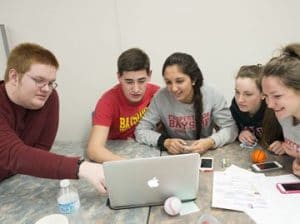 A team from Bayside Secondary School gathers around a computer during Loyalist College’s Iron Accountant competition. The event was designed to teach students about the analytical side of accounting.
A team from Bayside Secondary School gathers around a computer during Loyalist College’s Iron Accountant competition. The event was designed to teach students about the analytical side of accounting.
Photo by: Beleville News (Steven Petrick
The competition centred around one of our simulations, MikesBikes-Intro which gives students hands on experience of what it’s like to manage their own firm and to show a different aspect of Accounting. The simulation also gives them a chance to manage all the key functional areas of a firm. It provides them an opportunity to apply basic business concepts in a real life context, such as a Bicycle Manufacturing Industry. They get to experience making critical price, marketing, operations, product development and financial decisions. As managers of their firms, their primary goal is to enrich their shareholders (owners) by providing a positive return to their investments.
Accounting is like solving puzzles as Lane mentioned. It’s not just about math; it’s about making sure that the whole financial picture fit together.4 Professor Coupland also mentioned, ‘”there’s so much more to accounting, it requires analytical skills and the ability to see the big picture.” 3This all ties up, as an accountant needs to be someone who is well rounded and able to communicate their findings. Loyalist College aims to show students the bigger picture of Accounting and MikesBikes-Intro provides that experience to students, who participate in the simulation.
Again, congratulations to all the Iron Accountants on this outstanding achievement from everyone here at Smartsims!
References:
- Hamilton, Bevan. “Moira Secondary School Students Win Iron Accountant Loyalist Competition.” Q Net News. 10 Mar 2015. Web. 27 May 2015
- Petrick, Steve. “Iron Accountant Shows students the creative side of number crunching.” Inside Belleville. 16 Mar 2015. Web. 27 May 2015.
- Lorimer, Kerry. “Loyalist College Hosts Iron Accountant Competition for High School Students, March 10.” Loyalist College. 5 March 2015. Web. 27 May 2015.
- “Peggy Bishop Lane on Why Accounting Is the Language of Business.” Knowledge at Wharton High School. 23 Sept 2013. Web. 28 May 2015.
– Camille Canuto
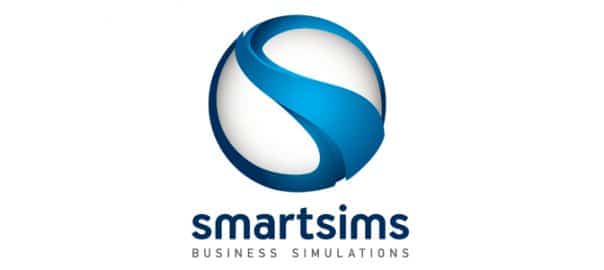

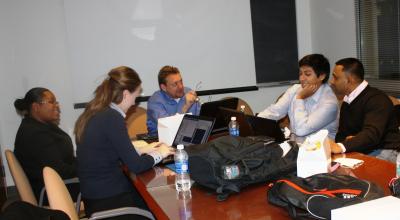
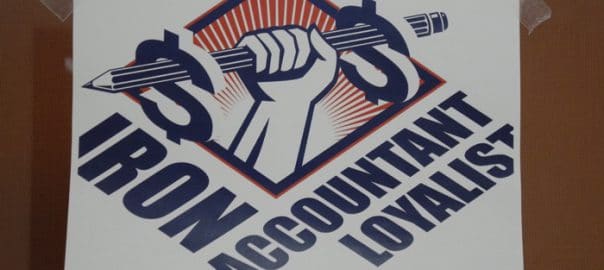
 A team from Bayside Secondary School gathers around a computer during Loyalist College’s Iron Accountant competition. The event was designed to teach students about the analytical side of accounting.
A team from Bayside Secondary School gathers around a computer during Loyalist College’s Iron Accountant competition. The event was designed to teach students about the analytical side of accounting.




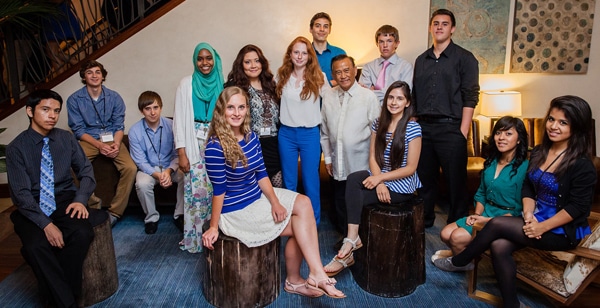
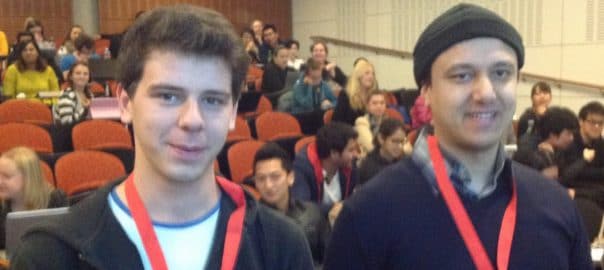
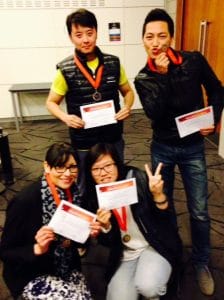 Drew Franklin, Teaching Assistant at AUT. Drew has been involved with MikesBikes as a part of the Marketing Strategy course since 2012. He introduces to his students that one of the benefits of the Mikes Bikes simulation is that they can apply the theoretical insights they gain during their coursework within a controlled-system that allows for practical application of theoretical decision-making models; in effect, exploring the relationships between theory and real-world application in a “safe” environment. As a Marketing and Media Manager for many years before his academic career, Drew can attest to the real-world applicability of the experience and insight gained through the use of the Mikes Bikes simulation for his students.
Drew Franklin, Teaching Assistant at AUT. Drew has been involved with MikesBikes as a part of the Marketing Strategy course since 2012. He introduces to his students that one of the benefits of the Mikes Bikes simulation is that they can apply the theoretical insights they gain during their coursework within a controlled-system that allows for practical application of theoretical decision-making models; in effect, exploring the relationships between theory and real-world application in a “safe” environment. As a Marketing and Media Manager for many years before his academic career, Drew can attest to the real-world applicability of the experience and insight gained through the use of the Mikes Bikes simulation for his students.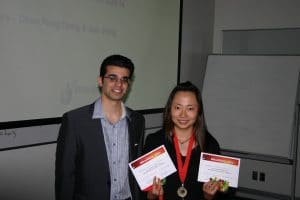
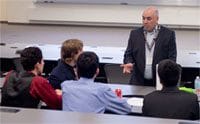
 Many delegates loved the opportunity to work with a speaker or sponsor in a friendly yet competitive environment. At the same time, many speakers and sponsors loved the opportunity to make a personal connection with our delegates. Fusion speaker and President of Pivotry Consulting Group Inc., Wayne Wang noted, “it was an overall great experience and Carl Cao did a great job holding things together. I hope Carl Cao keeps the Fusion Challenge. It was very unique and deserves to come back in my books!” Many other speakers and sponsors felt that the Fusion Challenge will be the key component in expanding the Fusion brand.
Many delegates loved the opportunity to work with a speaker or sponsor in a friendly yet competitive environment. At the same time, many speakers and sponsors loved the opportunity to make a personal connection with our delegates. Fusion speaker and President of Pivotry Consulting Group Inc., Wayne Wang noted, “it was an overall great experience and Carl Cao did a great job holding things together. I hope Carl Cao keeps the Fusion Challenge. It was very unique and deserves to come back in my books!” Many other speakers and sponsors felt that the Fusion Challenge will be the key component in expanding the Fusion brand.